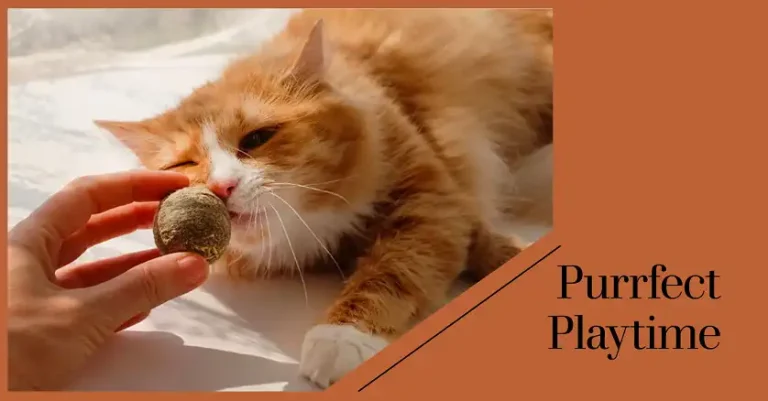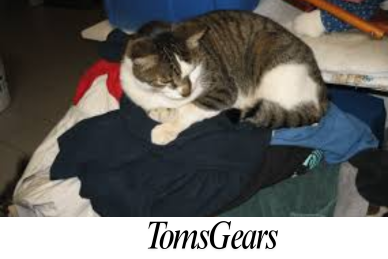How to Tell if Your Cat is Bored With Their Toys
Cats are natural hunters, and play is an essential part of their lives. It helps them stay physically active, mentally sharp, and emotionally content. When cats become bored with their toys, it can lead to various behavioral issues and negatively impact their overall well-being. In this article, we’ll talk about how to recognize toy boredom in cats, understand its causes, and discover effective strategies to keep your feline friend engaged and happy.
Signs Your Cat May Be Bored With Their Toys
Cats can’t verbally tell us when they’re bored, but they do exhibit certain behaviors that signal a lack of interest in their toys. Here are some key indicators to watch for:
- Decreased interaction with toys: If your cat used to pounce on their favorite mouse toy but now walks past it without a second glance, it might be a sign of boredom.
- Ignoring previously favored toys: Cats often have a “toy of the month.” If that toy has been collecting dust for weeks, it’s likely lost its appeal.
- Increased lethargy or sleeping: While cats are known for their love of naps, excessive sleeping can indicate a lack of mental stimulation.
- Attention-seeking behaviors: If your cat suddenly becomes more vocal, follows you around constantly, or engages in destructive behaviors, they might be seeking stimulation that their toys are no longer providing.
- Destructive behaviors: Scratching furniture, knocking items off shelves, or chewing on plants can all be signs that your cat needs more engaging activities.
Root Causes of Boredom in Cats
Several factors can contribute to a cat’s disinterest in their toys. The first is lack of variety, obviously. Just like humans, cats can get bored with the same old things. A toy box filled with identical mice might not cut it for long. Similarly, overfamiliarity can kill the mood of your feline friend as well. Cats are naturally curious creatures. Once they’ve thoroughly explored a toy, it may lose its appeal.
Lack of toy rotation is another cause of this. Leaving all toys out all the time can lead to overstimulation and eventual disinterest. Also, try to properly match the toy type with your cat personality. That’s because not all cats enjoy the same types of toys. So, try to match your cat’s personality and play style appropriately.
Strategies to Prevent Toy Boredom
Now that we understand the signs and causes of toy boredom, let’s explore some effective strategies to keep your cat engaged:
- Regular toy rotation: Create a “toy library” and rotate toys every few days. This keeps things fresh and exciting for your cat.
- Introduce new toys strategically: Instead of giving your cat all new toys at once, introduce them one at a time to maintain novelty.
- Combine toys with play sessions: Engage in interactive play with your cat using their toys. This not only prevents boredom but also strengthens your bond.
- Create toy scarcity: Put away most toys and leave out just a few at a time. This makes the toys more special when they do appear.
- Enhance toys with catnip or treats: Sprinkling catnip on toys or hiding treats inside can renew your cat’s interest in old favorites.
The Power of Interactive Play
While self-play toys are important, nothing beats interactive playtime with their human. It provides physical exercise and mental stimulation. This strengthens the bond between you and your cat. Not only that, it allows you to observe your cat’s preferences and adjust toy selection accordingly.
Aim for at least two 10-15 minute play sessions daily. Use this time to mimic hunting behaviors with wand toys or laser pointers (always end laser play with a physical toy they can “catch”).
Frequently Asked Questions
Is my cat bored or just lazy?
It can be challenging to distinguish between boredom and laziness in cats, as both can result in increased sleeping. However, a bored cat may also show signs of restlessness, such as pacing, excessive grooming, or destructive behavior. A lazy cat, on the other hand, is generally content and relaxed. If your cat perks up when offered stimulating activities, it’s likely they were bored rather than lazy.
Do cats get sad when bored?
While cats don’t experience emotions exactly like humans do, prolonged boredom can lead to stress and depression-like symptoms in cats. This can manifest as withdrawal, loss of appetite, or excessive vocalization. Providing mental and physical stimulation is crucial for maintaining your cat’s emotional well-being.
Do cats like listening to music?
Research suggests that cats can respond positively to certain types of music, particularly those with frequencies and tempos similar to purring or bird chirping. Classical music and specially composed “cat music” have been shown to have calming effects on some cats. However, individual preferences vary, so observe your cat’s reaction to different types of music.
Should I put cat toys away at night?
It’s generally a good idea to put away most cat toys at night, especially noisy ones that might disturb your sleep. However, leaving out a few quiet toys can provide entertainment for cats that are active at night. This practice also helps maintain the novelty of toys when you reintroduce them.
Are too many toys bad for cats?
While variety is important, having too many toys out at once can actually overwhelm a cat and lead to disinterest. It’s better to have a rotation system where you offer a few toys at a time and swap them out regularly. This keeps the toys feeling fresh and exciting to your cat.
Bottom Line
Understanding and addressing toy boredom in cats is an ongoing process. It requires observation, creativity, and a willingness to adapt to your cat’s changing needs and preferences. By providing a variety of toys, engaging in regular interactive play, and creating an enriching environment, you can help ensure your feline friend remains happy, healthy, and mentally stimulated.
Remember, every cat is unique. What works for one may not work for another. The key is to stay attentive to your cat’s behavior and preferences and to be willing to try new things. With patience and creativity, you can keep your cat entertained and content for years to come.






